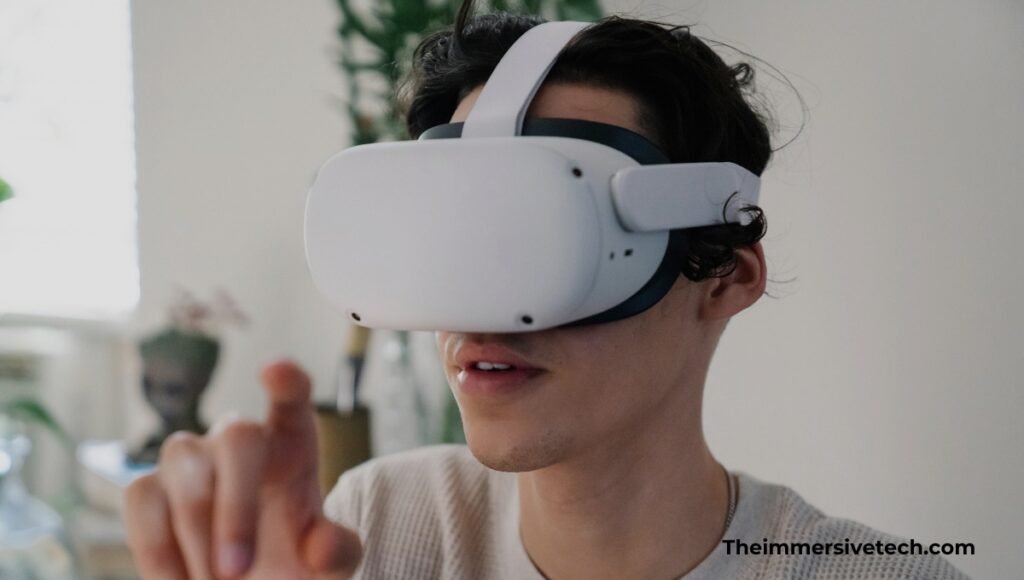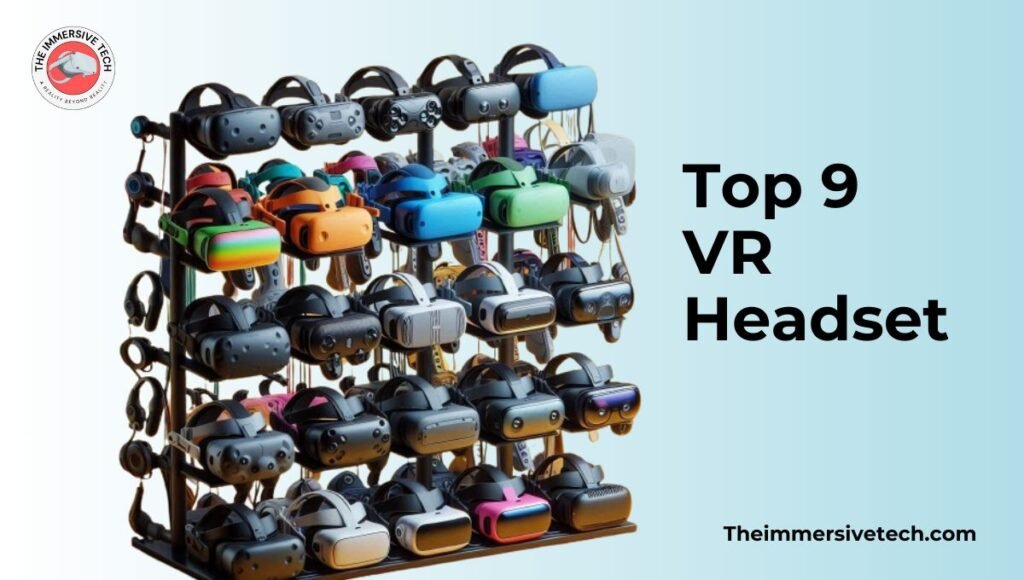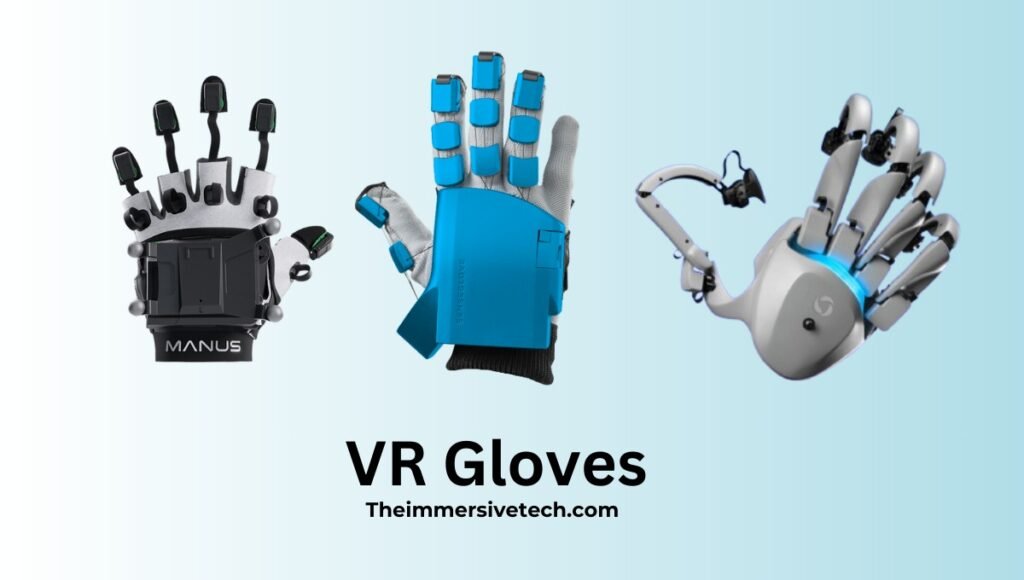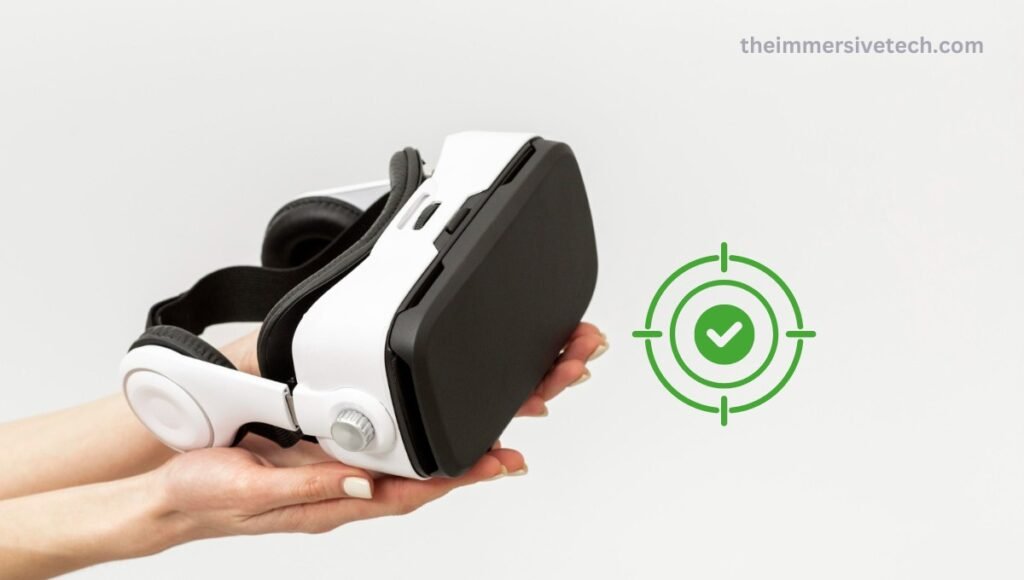Since 2012, VR has come a long way. Whether it’s the Apple Vision Pro or the Quest 3S, virtual reality has paved its way into the tech industry. However, the technology is now more than a headset.
New, innovative VR startups are emerging in the virtual reality industry. In this article, we will talk about 9 of these top startups that may thrive in 2025.
Types of Industries That Use Virtual Reality
Virtual reality has changed the way processes work, from industry-to-industry. Whether it’s manufacturing or healthcare, all the industries have adapted to the new technology.
Here are all the industries that use virtual reality:
- E-commerce: In e-commerce, virtual reality is used in many ways including virtual try-ons, showroom tours, and product demos. All of these uses help increase consumer satisfaction rates and sales.
- Education: Virtual reality helps students get realistic experiences of their subjects. This includes virtual field trips, real-world simulations, and immersive learning experiences.
- Engineering: In the field of engineering, VR is used to build product prototypes, create simulations for testing, and train engineers.
- Interior Design: Companies can offer virtual tours of interior styles, choose decor based on virtual previews, and test various styles based on their client’s preferences.
- Entertainment: Virtual reality is mainly used in the entertainment industry, including gaming, movie-watching, concert experiences, and sports. The technology has many uses in this wide industry.
- Healthcare: Virtual reality is changing many aspects of the healthcare industry: medical training, surgical, and patient care. All of these include applications such as pain management, rehabilitation, exposure therapy, medical simulation training, and surgical planning.
- Marketing: VR can improve marketing campaigns with intriguing visuals, immersive experiences, product demonstrations and storytelling.
- Real Estate: Virtual reality has shaped the real estate industry with virtual property tours, pre-construction visuals, and visualization. All of these help buyers see the vision for the property more clearly.
- Fitness: Virtual games allow users to engage in immersive workouts via games. This offers a fun and challenging way for users to stay fit.
Manufacturing: In manufacturing, virtual reality is used for training purposes, 3D product models and virtual prototypes. Sometimes, VR is also used to simulate dangerous situations to train engineers.
You may also read: – How is Virtual Reality Transforming the Tourism Industry?
Top 9 VR Companies of 2025
There are many virtual reality companies that are thriving in different industries. Here, we’ve listed 9 VR companies that are soaring in 2025:
1. Sandbox VR

Sandbox VR is a VR company that provides immersive location-based virtual reality experiences. Founded in 2016, Sandbox VR is an immersive game where up to 6 players can enter virtual worlds and play games with their friends.
Players can choose various customizable avatars and game scenarios to make their experiences fully realistic. They can also choose technical gear such as motion capture cameras, haptic suits, and 3D body trackers.
In the past 5 years, the company has seen an exploding search growth of 431%. It has also raised a funding of $63M (Series B).
2. Virtualitics

Virtualitics transforms data from excel sheets into a virtual space by combining the two. The platform combines data visualization and data analysis to be manipulated in a virtual setting. So, users no longer have to draw insights from a typical excel sheet.
Although the company didn’t see much growth initially, it peaked recently with a 5-year search growth of 1,800%. In addition, it raised a funding of $66.6M (Series C).
3. VRChat
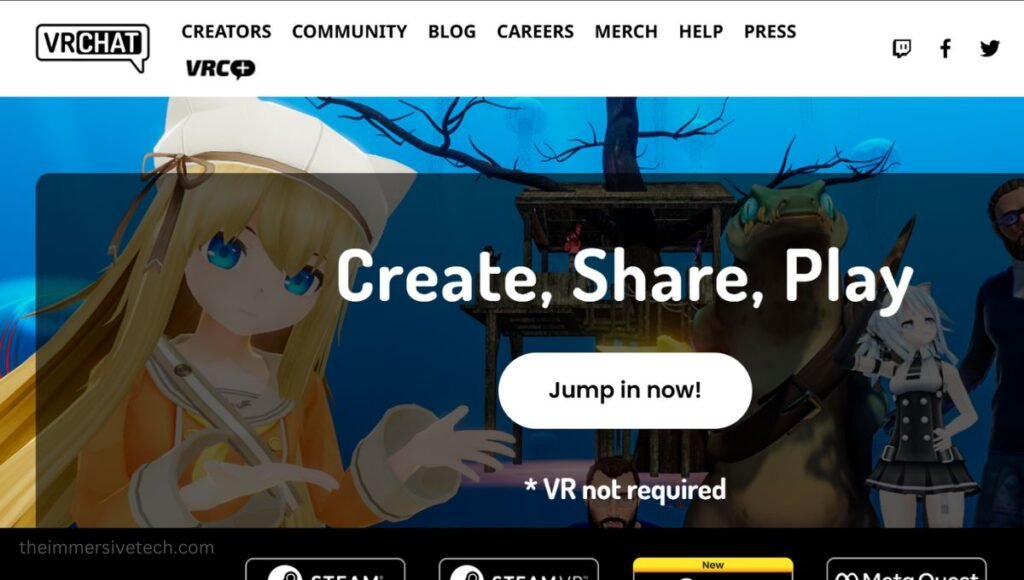
VRChat is a social platform where virtual reality users can interact and socialize with each other. There are various customisable avatars and virtual environments for the users to create unique experiences of their own.
VRChat was founded about a decade ago in 2014 and in recent years, it has exploded with a 5-year search growth of 425%. The company has raised a funding of $95.2M (Series D).
4. OpenSpace

OpenSpace offers virtual reality capabilities in the construction and real estate industries The VR platform helps real estate professionals to collaborate and track progress on their on-going projects.
The platform allows professionals to capture and track 360-degree images of construction sites in real-time. This feature allows everyone on the project to collaborate remotely, document and monitor the progress.
OpenSpace helps reduce errors, making workflows efficient in the real estate industry. Although the 5-year search growth has dropped by 15%, it peaked and the company raised a funding of $200.4M (Series D).
5. Labster
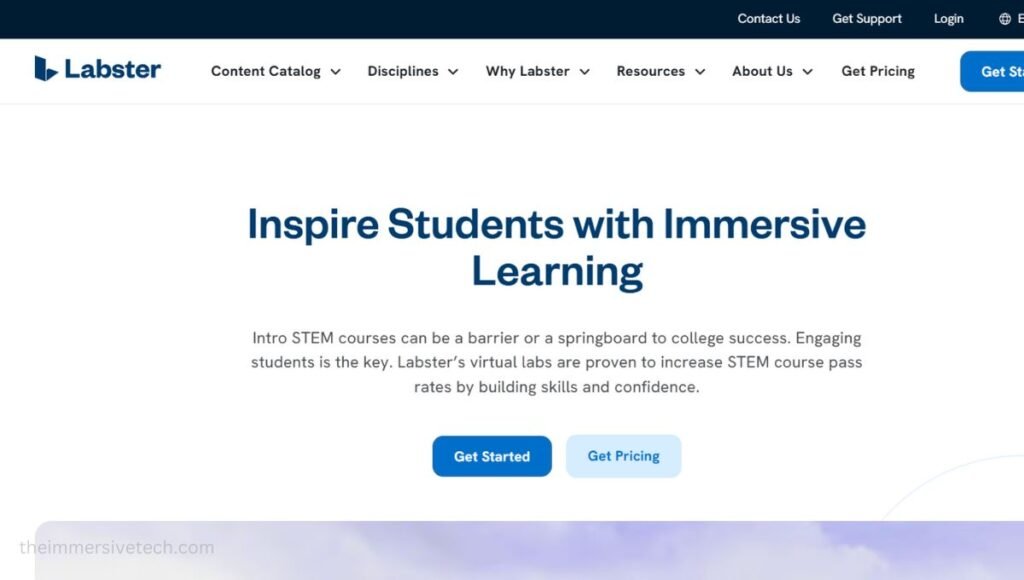
Labster is a dedicated VR platform for immersive science education, founded in 2011. The platform offers a range of virtual science lab simulations that help students to conduct experiments and learn science concepts in a safe and interactive environment.
In addition, educators can offer hands-on lab experience to the students virtually. All of this lets students access high-quality science education.
In the past 5 years, Labster’s search growth has been stable with 343% being average. The company raised $150.5M (Series C) funding.
6. Breakroom

Breakroom creates virtual simulated offices that are similar to real-world physical offices. The VR platform aims to solve the problems that come with remote workplaces.
Breakroom turns compatible VR headsets into multi monitor systems which allows users to have an experience similar to a real office. It doesn’t have a high 5-year search growth yet with only 52%. However, it seems to have an exploding growth. So far, Breakroom has raised a funding grant of $510K.
7. Polycam
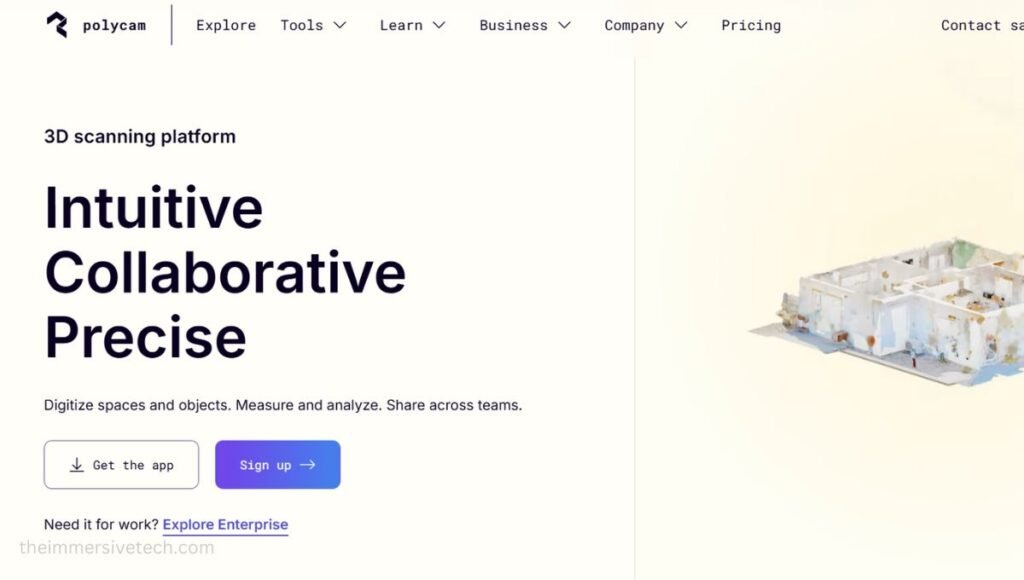
Polycam is a 3D scanning platform that’s available for web, iOS and Android devices. The app’s special feature is that it can create 3D models of real or virtual spaces especially for immersive VR experiences.
Polycam, as the name suggests, uses a LiDAR sensor that scans open spaces and captures 360-degree images. It was founded only in 2021, and it’s already soaring high. In February 2024, Polycam raised a funding of $18M (Series A).
8. Insta360
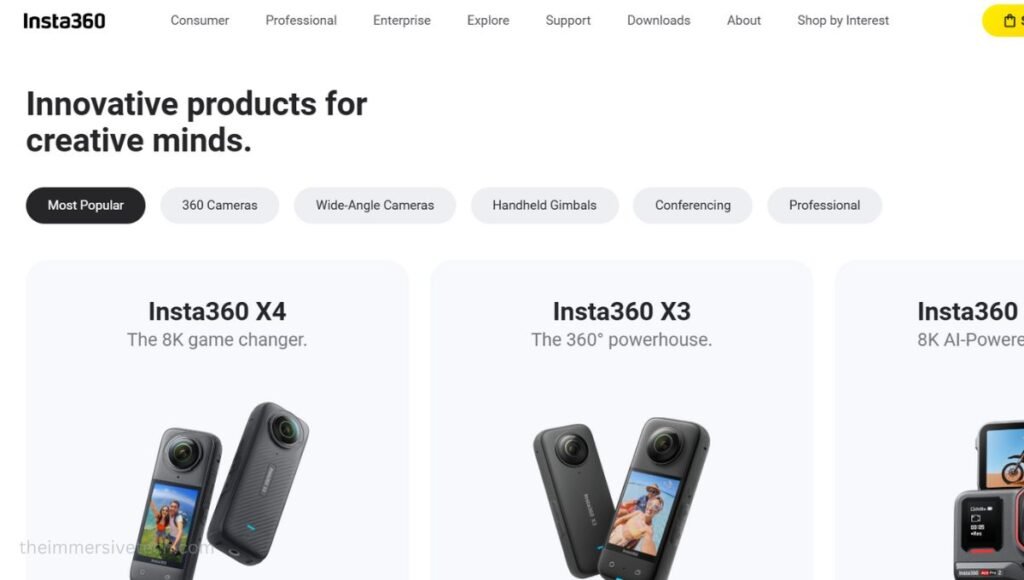
Insta360 is a Chinese VR and 360-degree camera manufacturing company. Founded in 2014, the startup’s primary VR cameras are the Titan and Pro 2. These cameras can capture 8k or 11k 3D videos with FlowState stabilization technologies.
In the past year, Insta360 has surpassed $2 billion in revenue at a 50% annual growth rate. The company has also raised a funding of $59M (Series E).
9. Relax VR

Relax VR offers users a calm experience in an virtual setting. The platform combines meditation with an immersive virtual reality experience to help users relax.
Relax VR aims to create a full-fledged experience with tranquil landscapes and guided meditations. These help users engage all their senses simultaneously, relaxing completely.
Conclusion
The virtual reality market will be soaring high in the coming years, according to various predictions. From medicine to real estate, virtual reality is thriving in every industry.
Even though virtual reality may never become the mainstream tech, it will still create its own use cases and space within industries. This list represents some of the VR startups that will probably thrive in 2025.



